- Home
- Franklin Horton
Switched On Page 2
Switched On Read online
Page 2
Boss witnessed the whole thing, pleased with the cool efficiency of the kill. "Good job, T.J. Group One move forward. Prepare to breach. And check that damn door. No sense using a battering ram if you don't need to."
T.J. moved to the door and twisted the handle. It was indeed unlocked. He raised a high thumbs up, hoping everyone on the team caught the gesture.
“You’re clear to breach,” Boss announced.
The team stacked up, their weapons held ready and selectors set to burst fire. When everyone nodded that they were ready, T.J. triggered his light and slipped inside.
Unlike the drug raids seen on TV, where officers ran in announcing themselves, this raid was executed in near silence. That was, until the gunfire started. Boss was pleased to hear that all of the gunfire was suppressed weapons. No shotguns, no deer rifles. He took that to mean there was no return fire. This was his men cleaning house.
Boss said nothing. He did not want to distract his men even though he was curious how it was going. When they were done, they would let him know.
"We’re clear," came T.J.'s announcement. It was less than a minute later but seemed much longer.
"Roger that,” Boss said. “Any injuries?”
“That’s a negative.”
“Group One, clear the buildings. Group Two, secure the perimeter.”
When the groups acknowledged their orders, Boss went to see the scene in the workshop for himself.
“It looks like some kind of family group,” T.J. said. “They didn’t put up a fight.”
Boss nodded. “After we’ve cleared the facility, toss the bodies in the river. The snapping turtles will clean up the mess.”
2
Present Day: Winter
The scene in Jim Powell's living room made it almost seem like a typical winter power outage. It could have been the aftermath of an ice storm or a heavy snow, but it wasn’t. The United States had been shaken to its core and his family, like many others, was struggling to keep their heads above water. Jim, his wife, his two kids, and his parents were sitting around the room trying to stay occupied. Jim’s mom had taken to crocheting, something she hadn’t done in nearly twenty years. Pops was reading a nine year old issue of Outdoor Life, learning how to snag springtime lunkers. The rest were playing a game of Sorry.
Except for Jim. He was pacing the house restlessly, feeling like a caged animal. He was not an inside person.
The impression that the lack of power could be attributed to a winter storm was compounded by the fact there actually was deep snow outside the French doors. It was nearly two feet deep in the drifts. It was the type of storm this region usually only got once every ten years or so. That it came in a winter already brimming with hardship was par for the course. Nothing had been easy for them, a trend that apparently would continue.
Were this a typical winter storm, the kids would be rejoicing in the school closures. They would be outside riding sleds and snowboards, enjoying the novelty of feeling like they were camping in their own home. But now, after seven months with no power, the novelty was long gone. Everyone was tired of camping in the house. Everyone was tired of the struggle. They all wanted life to go back to the way it was a year ago.
Everyone, even Jim, dreamed of power being restored. As a lifelong survivalist, Jim had to admit that there were moments over the years where he wished the country would collapse just to wake people up. He imagined a good dose of hardship might bring some reality into the lives of people that seemed totally oblivious. He felt like people had gotten too dependent on the government and too used to lives of relative ease. They’d forgotten the lessons of previous generations. They’d forgotten that no one would ever care about the safety of your family as much as you would. They’d forgotten that, ultimately, your fate and your survival was in your own hands.
Though everyone in Jim's family was still alive they'd all been touched by hardship. There was chaos and violence everywhere, even in small town America. They’d all had to make hard decisions. Some had been forced to kill another human and none had been spared the anguish of having to bury people they knew and cared about. With survival came suffering, but it was the only option. This was not a family that gave up. This was not a family of sheep that would lay down for slaughter.
Jim knew his family was faring better than many around him. They had resources accumulated from Jim’s years of obsessive preparations. On this cold winter day they had warmth from the fireplace, light when they needed it, spring-fed running water, and they would eat a hot dinner. Though Jim carefully rationed food, they had not known deprivation or starvation. He would do his best to make sure that remained the case.
Despite their comfort, Jim was starting to experience cabin fever. He was used to being active during the day. He’d already done a lot of shoveling and there were paths to nearly everywhere on his farm that he might need to go. He and his son were also taking turns maintaining watch at the various observation posts around the valley. He just didn’t like being inside so much. He went to the group of tall windows that looked out over the yard. The view hadn’t changed since he looked out this same window just a few minutes ago. It was a beautiful view despite the circumstances, with billowing clumps of snow clinging to cedars and a pristine overlay of white that almost made one forget what a dirty, gritty, and violent place the world had become.
“This reminds me of the big snows we had when I was a kid,” Jim said.
“Were they really bigger or are just we getting older?” Ellen asked.
“They were bigger,” Nana said. “It seems like every winter we had at least one really bad one. Now you may go an entire winter with just a dusting of snow that melts right off.”
“What was it, ’77 or ’78, that we had that really big one and missed two months of school?” Jim asked.
“I think it was 1978,” Nana said. “The snow just kept coming. Every time it melted down a little, more came.”
“I was four. I don’t remember it,” Ellen said. There was about eight years difference between her and Jim.
“The sledding was great,” Jim said. “We didn’t have any close neighbors really but I met up with other kids that lived on the same road. We would find a good spot and sled there all day. We’d find a cedar tree and build a fire under it. They had dense foliage that the snow couldn’t get through. You could strip the bark off for getting the fire going.”
It was yet one more of those things that kids these days probably wouldn’t have the opportunity to experience. Parents couldn’t let their kids be gone like that all day. Things could happen. Freaks could steal them. Social Services would come investigate that they were unsupervised.
“You remember that day you went sledding with Mr. Fairlane?” Nana asked. “It was during that same storm.”
Jim smiled. “I’d forgotten about that. He was a nice man.”
Nana smiled. “A wonderful man.”
“Who was Mr. Fairlane?” Ellen asked.
“He was a retired teacher that was one of our closest neighbors,” Jim replied. “I guess he was going stir-crazy too. We heard a knock at the door and were kind of surprised because our road was impassable. We went to the door and there was old Mr. Fairlane in a snowsuit.”
“It was funny,” Nana said. “He was like a kid asking if Jim could come out and play.”
“We went sledding there by the house,” Jim said. “Rode for hours and then he went back home.”
“That’s cool,” Ellen said.
“It was,” Jim agreed. “I hadn’t thought about him in years. What happened to him?”
“He died when you were away at college,” Nana said. “His wife stayed on in the house by herself. They had two kids but the daughter died when she was a teenager. The son moved to California and rarely came back.”
“What happened to Mrs. Fairlane?” Jim asked.
“She’s still alive as far as I know,” Nana said. “I saw her out in town sometimes. She had friends from church who came by and t
ook her out shopping.”
“Wouldn’t she be over a hundred years old by now? They were old when I was a kid.”
“Kids aren’t good judges of age,” Nana said. “But anyway, she was twenty years younger than him. She was fresh out of the state teacher’s college when he scooped her up. Age differences meant less then. People weren’t as concerned with marrying a peer.”
Jim thought about it. Even with the age difference, that would put Rosa Fairlane in her mid-eighties. He couldn’t imagine that she’d survived to this point. The elderly were the hardest hit. They weren’t able to get medications. Their pantries didn’t have the padding that working families might have due to limited income or outliving their savings.
He walked over to the bookcase and picked up a pointed rock from a shelf. It was a Native American relic, a digging tool of some sort. Mr. Fairlane had given it to him when he was a kid. The man had started collecting relics in the 1930s, long before most people had any interest in them. He had an extensive collection and had given Jim many small items over the years.
The man had been something of a relic himself, of a time when men, when people in general, were different. He’d been born around 1910 best as Jim remembered and had come up poor. He’d worked and saved, putting himself through Virginia Tech at a time when they were only handing out a couple of dozen degrees each year. He was genteel and intelligent while remaining as homespun and country as anyone around him. It was the kind of thing that educated people from the area tried to erase within themselves anymore. They wanted the country gone. The wanted the hillbilly gone.
Jim put the relic back on the shelf. “I’m going to do some work in the shop.” The place was well-insulated and had a woodstove. It wouldn’t take long to get it warmed up. There were always things in there that needed tinkering with, experiments and things he never got around to finishing.
As he dressed, Jim thought of the impish Mr. Fairlane with his thick white hair and bushy white eyebrows. He could almost remember his voice, although he found it strange that it was the most difficult detail to recall. His face, his clothes, and his gait were not difficult but Jim struggled with the voice.
When he got his coat and boots on, he grabbed a handgun and a rifle from hooks by the door then stepped out into the cold. Perhaps that served to focus things for him. Then it came to him. He heard the laugh, then the voice came with it. When it came to him, he heard it clear as the crisp day that lay before him.
“Would you mind to check on Rosa for me?”
There’s no way she’s still alive, Jim thought. She seemed in frail health thirty years ago, at least to his child’s mind. But he would check out of respect for someone who helped make him who he was. He would check in honor of a world that he missed.
The door opened behind Jim.
“Dad?” It was Pete. “You forgot your radio.”
Jim checked his empty radio pouch. “I didn’t notice.”
“I wouldn’t have noticed either, but Hugh was calling you on it,” Pete said.
“Thanks,” Jim said, patting his son on the shoulder. He raised the radio to his mouth. “Hugh, you still there?”
“Yes sir,” Hugh replied.
Hugh was an old friend. They had worked together at Jim’s first job. They hadn’t crossed paths for years but made contact again when Jim found out Hugh was working as a radio operator for a group of rogue cops who had taken over the local superstore. When those folks took Jim prisoner, Hugh played a role in his escape, and ended up moving into the valley with Jim’s group. He was an amateur radio operator and spent the cold months of winter getting his radio equipment operational. He was now scouring the airwaves for any information about the state of the world. He radioed Jim with an update every day.
“How are things up on the mountain?”
“Any better and I wouldn’t be able to stand it,” Hugh replied.
“So what’s going on?”
“I’ve been logging contacts ever since I got this equipment up. There’s been chatter all winter about helicopters, trains carrying troops, occupying foreign armies—all the usual conspiracy-type bullshit. It’s all so fragmented that none of it makes any sense. But the feds started blasting a message everywhere last night.”
“What do you mean by blasting?”
“They’ve got a loop repeating on all kinds of frequencies—ham frequencies, commercial VHF, AM, FM, weather—all over the damn place.”
“Saying what?”
“Saying power restoration will begin next week.”
Jim was so shocked he had to sit down on the steps. “Next week?”
“That’s what they said. No details but to continue listening for updates next week.”
“Jesus,” Jim mumbled, uncertain if he’d even keyed the mike or not.
“This explains all those flickers of power over the winter,” Hugh went on. “They were working on shit, testing. Maybe we’re at the end of this.”
Other families in the valley who were monitoring the same frequency began bombarding Hugh with questions. He did his best to answer them with what little information he had. As word spread over the next couple of days, each person would struggle to make sense of this crazy chapter of their lives. They would hope that, as Hugh said, they were at the end of it.
What would be ending would not be what any of them expected.
Jim shoved his radio in the pouch on his vest. He went back in the house and stood on the rug by the door allowing his eyes to adjust to the light.
“Back so soon?” Nana asked.
Jim didn’t immediately answer, still processing Hugh’s information.
“You okay?” Ellen asked.
“Did you guys hear Hugh on the radio?” Jim asked.
Ellen looked around. “I think I left my radio in the bedroom.” It was something Jim fussed at her about. The radio did no good in an emergency if you couldn’t hear it. She prepared herself for a lecture but it didn’t come.
“Hugh says there’s been an official transmission about the power,” Jim said. “Restoration is supposed to begin next week.”
All eyes turned to him, questioning. When they saw he wasn’t joking, Ariel jumped to her feet and began cheering. Everyone else soon joined her. They were lost in their reverie and didn’t notice Jim slip back out the door.
Jim stood on the porch and surveyed his kingdom, shading his eyes against the reflected sunlight with a raised arm. The sun may be bright but it was still too cold for any significant melting to take place. In other projects accomplished out of boredom, wide paths were shoveled to the woodshed, the barn, and the shop building. When Jim got tired of sitting in the house, carrying firewood was usually the remedy, but the wood rack on the front porch was already stacked full. Even in these cold temperatures, there was probably enough for a week or longer.
The information Hugh had delivered was stunning. Admittedly, there were no details, but the pieces made sense. There was a power plant within twenty miles of the valley. Surely if it was restored, they would have access to power soon. Jim tried to stay in the present and not let his mind run away with him. Even on that little piece of information, it was racing. He even found a part of himself already doing an after-action report on this entire SHTF period of his life. What preparations had worked and what hadn’t? What would he do differently next time?
Next time?
He definitely hoped there was never a next time.
His churning thoughts were interrupted by a shout. Times being what they were, the shout provoked him to step back toward his house and move the M4 to a low ready position until he’d assessed the situation. The sun reflecting off the snow made it hard to get a good look in all directions but he soon noticed a bundled figure making its way across the field toward him, coming from the direction of Randi's house.
"That you, Randi?"
He couldn't tell through the layers. Between the scarf, sunglasses, jacket, and gloves, there was no flesh exposed. Although he could usually t
ell folks by their gait, in this case it was little more than an overstuffed waddle that told him nothing.
"Yeah, it's me. I had to get out of the house. My family, God bless ‘em, is driving me bat shit."
Jim laughed. "I feel your pain. I’m starting to pace the house like a lion at the zoo."
He went down the steps and waited while she staggered closer, letting herself through the wide cattle gate that separated the pasture from the yard.
"I needed to get out for a while," she said. "I told them I needed to check the horses and make sure their blankets were still tight or some shit like that. It was just an excuse to get out. The kids and grandkids have watched Finding Nemo on a tablet four times today already. I can't take it anymore."
"Well, I was going to build a fire in the shop and tinker with a few projects. You’re welcome to come hang out in there.”
Randi shrugged beneath the layers, at least that was what it looked like. "Is there a chair? I ain’t sitting on any uncomfortable stool. I’m old and cranky and a stool won’t help that."
"Even better. There’s a comfortable couch. I’ve slept on it before when one of the kids was having a rowdy sleepover with their friends. I’m pretty sure there’s even a few bottles of liquor stashed out there somewhere if that’s what you need."
Randi shook her head. "Despite Lloyd's best efforts, I'm not quite as fond of day drinking as he is, but don't take that as a hard no. That is subject to change."
They headed in the direction of the shop, Randi following Jim down the shoveled path. The snow crunched and squeaked beneath their boots.
"I'm thinking about making a run into town tomorrow," Jim said. "Think we could take your horses?"
"Only if you take me with you."
"Of course you can go. Seems like you need out as bad as I do."

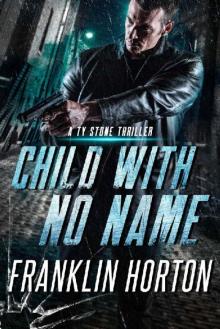 Child With No Name
Child With No Name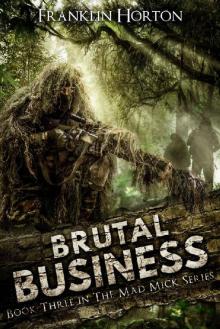 Brutal Business: Book Three in the Mad Mick Series
Brutal Business: Book Three in the Mad Mick Series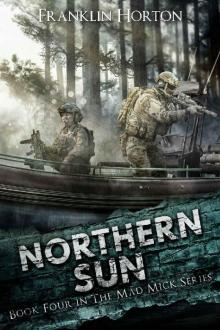 Northern Sun: Book Four in The Mad Mick Series
Northern Sun: Book Four in The Mad Mick Series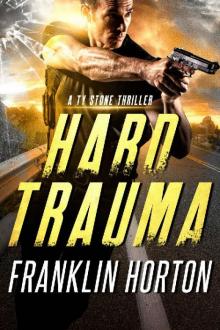 Hard Trauma
Hard Trauma The Mad Mick: Book One of The Mad Mick Series
The Mad Mick: Book One of The Mad Mick Series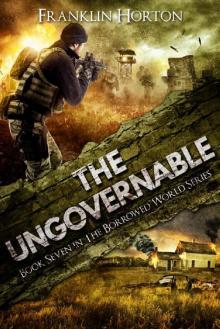 The Ungovernable
The Ungovernable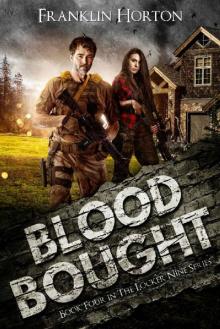 Blood Bought: Book Four in The Locker Nine Series
Blood Bought: Book Four in The Locker Nine Series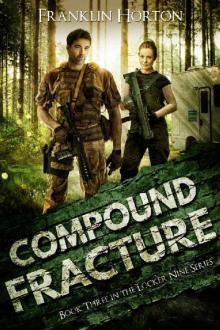 Compound Fracture
Compound Fracture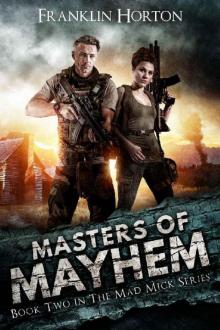 Masters of Mayhem
Masters of Mayhem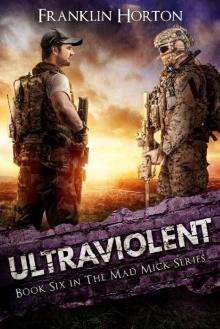 Ultraviolent: Book Six in The Mad Mick Series
Ultraviolent: Book Six in The Mad Mick Series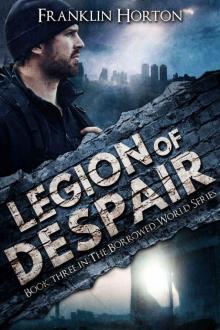 The Borrowed World (Book 3): Legion of Despair
The Borrowed World (Book 3): Legion of Despair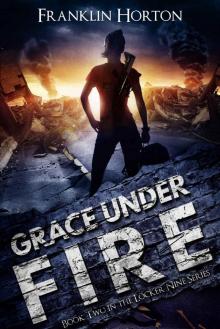 Grace Under Fire: Book Two In The Locker Nine Series
Grace Under Fire: Book Two In The Locker Nine Series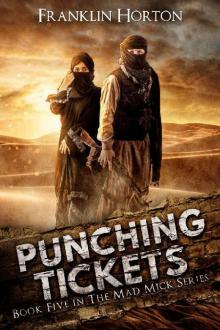 Punching Tickets: Book Five in The Mad Mick Series
Punching Tickets: Book Five in The Mad Mick Series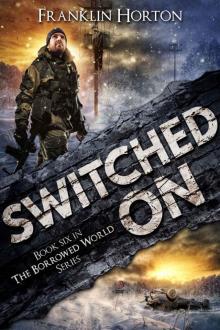 Switched On: Book Six in The Borrowed World Series
Switched On: Book Six in The Borrowed World Series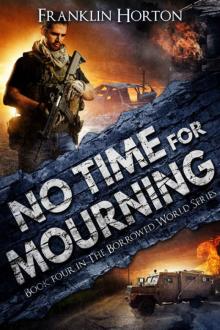 No Time For Mourning: Book Four in The Borrowed World Series
No Time For Mourning: Book Four in The Borrowed World Series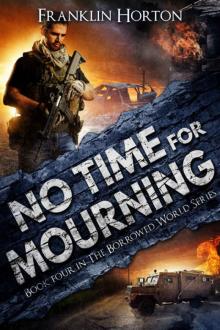 The Borrowed World (Book 4): No Time For Mourning
The Borrowed World (Book 4): No Time For Mourning Random Acts
Random Acts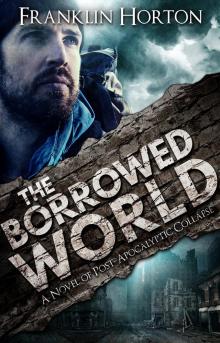 The Borrowed World: A Novel of Post-Apocalyptic Collapse
The Borrowed World: A Novel of Post-Apocalyptic Collapse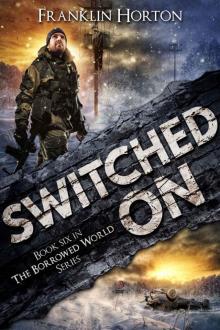 Switched On
Switched On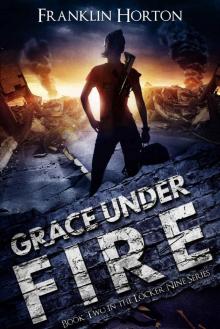 Grace Under Fire
Grace Under Fire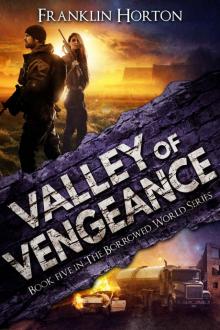 Valley of Vengeance: Book Five in The Borrowed World Series
Valley of Vengeance: Book Five in The Borrowed World Series